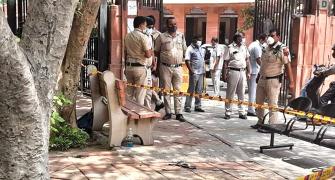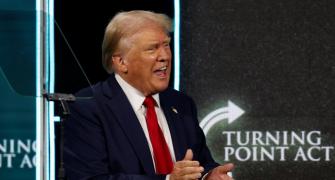In what appears to be a carefully scripted prosecution process, the Federal Bureau of Investigation has been trying to have the prosecution of David Coleman Headley, the Chicago-based US citizen of Pakistani origin, who allegedly helped the Lashkar-e-Tayiba in carrying out the 26/11 terror strikes in Mumbai last year, conducted in such a manner as to avoid any focus on his alleged links with the US Drug Enforcement Agency.
These links were recently hinted at in a New York Times report on Headley. It alleged that in 1998, Headley (then known as Dawood Gilani) was convicted of conspiring to smuggle heroin into the US from Pakistan. The report said, 'Court records show that after his arrest, he provided so much information about his own involvement with drug trafficking which stretched back more than a decade and about his Pakistani suppliers that he was sentenced to less than two years in jail and later went to Pakistan to conduct undercover operations for the DEA.'
Surprisingly, neither the initial affidavit nor the subsequent Criminal Information Report against Headley, filed by the FBI in the Chicago court, refer to his previous criminal record. Nor was there any reference to the fact that he was cooperating with a US government agency since 1998 and had been co-operating with it in its anti-narcotics operations in the Afghanistan-Pakistan region. The ease with which he got visas to travel frequently to Pakistan and India can be put down to the interest taken by the DEA in facilitating his travels.
The Indian media reported that when Headley was produced before the federal judge for the first time, he pleaded not guilty to the charges against him. It has missed two other significant points. Headley told US district judge Harry D Leinenweber that he understood the charges and was waiving any indictment in the case. Secondly, he waived his right to a trial by a grand jury.
Sections of the US media have pointed out that the fact that the report filed against him by the FBI in the court was called a Criminal Information Report and not an indictment indicated that the FBI has already reached a plea bargain deal with Headely, under which as a quid-pro-quo for his admitting some charges when the trial commences, the FBI will not press other charges against him. His admitting some charges and the FBI dropping other charges will obviate the need for an elaborate trial with the introduction of detailed evidence.
This would prevent any deliberate or inadvertent disclosure by him of his work in the Af-Pak region for the DEA, which works in close co-operation with its Pakistani counterpart. The two agencies have many joint operations.
It is very likely that the US will not allow Headley to be interrogated by Indian investigators and will not agree to his extradition to India as that might result in the Indian authorities gaining insights not only into his contacts with Pakistani agencies, but also with the DEA.
Senior officials in the White House and the FBI have been taking a close and unusual interest in the investigation and prosecution. The director of the FBI himself was reported to have visited Chicago before Headley was produced before the court.
Many in India have analysed this as indicative of the close interest taken by President Obama in counter-terrorism co-operation with India. A more plausible explanation is that this is indicative of the concerns in the White House and the FBI that if the prosecution is not properly handled, the case could result in a bombshell if it emerges that one of the active conspirators of 26/11 was an agent of a US agency.







